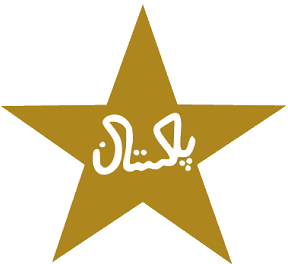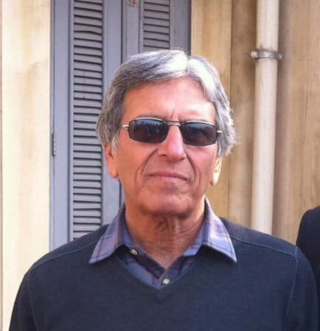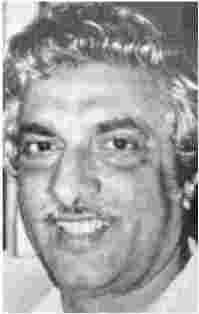Related Research Articles

Shoaib Akhtar is a Pakistani former international cricketer and commentator. Nicknamed the "Rawalpindi Express", he is the fastest bowler in cricketing history, with an unbeaten 161.3 kmph delivery. Akhtar made his Test match debut in November 1997 as an opening fast bowler and played his first One Day International three months later. He has been involved in several controversies during his career, often accused of unsportsmanlike conduct. Akhtar was sent home during a Test match series in Australia in 2005 for alleged poor attitude and a year later received a ban after testing positive for the performance-enhancing substance nandrolone. However, the ban imposed on him was lifted on appeal. In 2008, Akhtar was banned for five years for publicly criticising the Pakistan Cricket Board, although in October 2008, the Lahore High Court suspended the ban and Akhtar was selected in the 15-man squad for the Twenty20 Quadrangular Tournament in Canada. Akhtar retired from international cricket after the 2011 World Cup. Post-retirement, he began a YouTube career by starting his own channel, where he gives reviews on International and league matches and Pakistani cricket.

The Pakistan national cricket team, has represented Pakistan in international cricket since 1952. It is controlled by the Pakistan Cricket Board (PCB), the governing body for cricket in Pakistan, which is a Full Member of the International Cricket Council (ICC). Pakistan compete in cricket tours and tournaments sanctioned by the PCB and other regional or international cricket bodies in Test, One Day International (ODI), and Twenty20 International (T20) formats. Pakistan are current ICC Champions Trophy holders.

Mushtaq Ahmed is a Pakistani cricket coach and former cricketer who currently acts as the spin bowling coach for the Pakistan Cricket Team. A leg break googly bowler, at his peak he was described as being one of the best three wrist-spinners in the world. In an international career that spanned from 1990 until 2003, he claimed 185 wickets in Test cricket and 161 in One Day Internationals. He was at his most prolific internationally between 1995 and 1998, but his most successful years were as a domestic player for Sussex in the early 2000s.

Bishan Singh Bedi was an Indian cricketer who was primarily a slow left-arm orthodox bowler. He played Test cricket for India from 1966 to 1979 and formed part of the famous Indian spin quartet. He played a total of 67 Tests and took 266 wickets. He also captained the national side in 22 Test matches. Bedi wore a colourful patka and was always known for his outspoken and forthright views on cricketing matters. He was awarded the Padma Shri award in 1970 and the C. K. Nayudu Lifetime Achievement Award in 2004.

Saleem Malik, is a Pakistani former cricketer. He played for the Pakistan national cricket team between 1981/82 and 1999, at one stage captaining the side. He was a wristy, right-handed middle-order batsman who was strong square of the wicket. His off break bowling was also quite effective. Despite playing more than 100 Tests he would go down in cricket history as the first of a number of international cricketers to be banned for match fixing around the start of the 21st century. Saleem is the brother-in-law of former teammate Ijaz Ahmed.
The Indian spin quartet is the collective name given to the Indian cricket spin bowlers of the 1960s and 1970s: Erapalli Prasanna and Srinivas Venkataraghavan, Bhagwat Chandrasekhar, and Bishen Singh Bedi. Among them, they played 231 Test matches, taking 853 wickets. They were one of the most deadly combinations in world cricket, especially on the dusty subcontinental pitches.
Surinder Amarnath Bhardwaj is a former Indian cricketer who scored a Century on both Official & Unofficial Test debut.

Majid Jahangir Khan, nicknamed "Majestic Khan" by the British press, is a former cricketer, batsman and captain of the Pakistan national cricket team. In his heyday, he was considered to be one of the best batsmen in the world. Khan has a claim as the best ever opening batsman against express pace, averaging over 50 each in test matches and World Cups when opening against the fearsome pace attacks of the 1970s West Indies and Australia, with all but 2 of these matches played away from home. In his first class cricket career spanning 18 years, from 1961 to 1985, Majid Khan played in 63 Test matches for Pakistan, scoring 3,931 runs with 8 centuries, scored over 27,000 first-class runs and made 73 first-class centuries, with 128 fifties. Majid played his last Test for Pakistan in January 1983 against India at Gaddafi Stadium, Lahore and his last One Day International (ODI) was in July 1982 against England at Old Trafford, Manchester.
Maurice Linton Churchill Foster played 14 Tests and two One Day Internationals for the West Indies and he was a talented table-tennis player. He attended Wolmer's Schools. He was a member of the squad that won the 1975 Cricket World Cup.
Saleem Elahi is a former Pakistani cricketer who played 13 Test matches and 48 One Day Internationals between 1995 and 2004. He made 102 not out on his international debut, against Sri Lanka in September 1995, becoming the first player from Pakistan to score a century on ODI debut.

Robert Smith Cunis played 20 Test matches for New Zealand as a pace bowler between 1964 and 1972, and was later coach of the New Zealand national team from 1987 to 1990. His son Stephen played cricket for Canterbury between 1998 and 2006.
David Robert O'Sullivan played 11 Tests and three One Day Internationals for New Zealand between 1973 and 1976. He played first-class cricket from 1971 to 1985.
Inshan Ali was a West Indian international cricketer who played in 12 Test matches from 1971 to 1977.

Haseeb Ahsan was a Pakistani cricketer who played 12 Test matches for Pakistan between 1958 and 1962. He was born in Peshawar, Khyber Pakhtunkhwa. A right-arm off spinner, he took 27 wickets in Test cricket at an average of 49.25, including two five-wicket hauls. During his first-class career, he played 49 matches and took 142 wickets at an average of 27.71. Former Pakistan cricketer Waqar Hasan said about him that he "was a fighter to the core and served Pakistan cricket with honour and dignity."
Mohammed Ijaz Butt was a Pakistani cricketer who played in eight Test matches from 1959 to 1962. A wicket keeper and right-handed opening batsman, he scored 279 runs from his brief Test career at a modest batting average of 19.92, however he was a capable wicket keeper with a first-class cricket career for Lahore, Multan, Punjab and Rawalpindi where he scored 3,842 runs at 34.30 with a best of 161.
Dayle Robert Hadlee is a New Zealand former cricketer who played in 26 Tests and 11 ODIs from 1969 to 1978. He is the son of Walter Hadlee, the older brother of Sir Richard Hadlee and the younger brother of Barry Hadlee.

Michael John Froud Shrimpton was a New Zealand cricketer and coach.
The Pakistan national cricket team toured Australia in the 1972–73 season and played three Test matches against the Australian national cricket team. After an inadequate preparation against weak teams, Pakistan lost by an innings in the first Test in Adelaide. While Australia won the series 3–0, the last two tests were competitive, with Pakistan seeming the likely winner on the second last days. The 2nd test in Melbourne was attended by 115,721. Pakistan also visited Sri Lanka and played a match against the Sri Lankan national cricket team and followed the tour with a series against New Zealand, where both teams played their first ODI.
In the history of Australian cricket from the 1970–71 season until 1985, notable Australian players include brothers Ian and Greg Chappell, Jeff Thomson, Dennis Lillee, Rod Marsh and Doug Walters.
References
- ↑ Phil Wilkins, "Pakistan in Australia and New Zealand, 1972-73", Wisden 1974, p. 912.
- ↑ PTI (17 June 2008). "Bitter Altaf lashes out at PCB, denies being a media mole". The Times of India. Retrieved 27 April 2019.
- ↑ PCB official resigns soon after Altaf sacking. Cricinfo.com